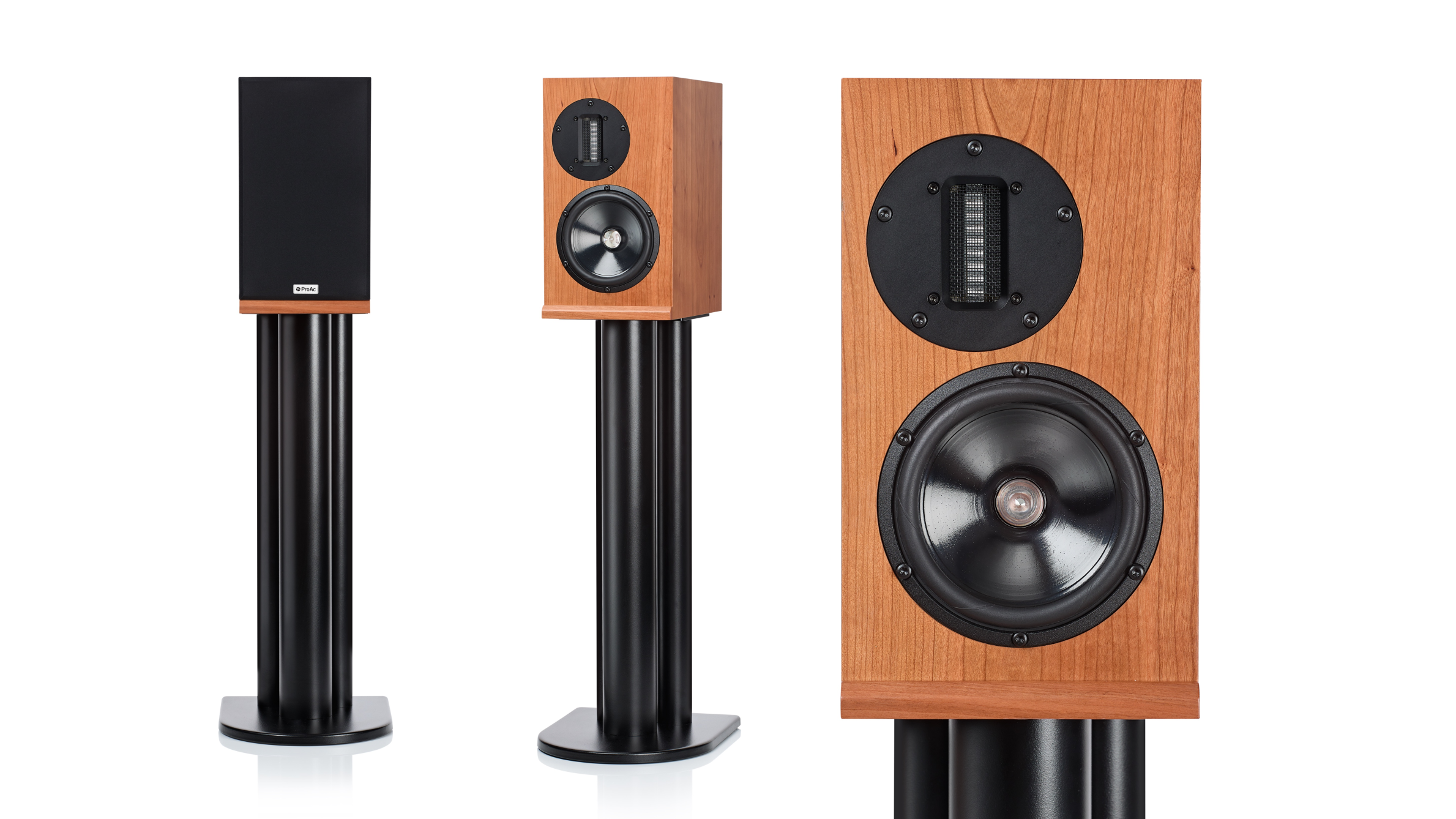What Hi-Fi? Verdict
The Prodigy 5 speakers deftly balance natural vocals, refined bass and a snappy sense of rhythm to deliver a supremely cohesive listening experience. They are, in short, one of the best at the price
Pros
- +
Gorgeous, refined sound
- +
Great value for money
- +
Unfussy about placement
Cons
- -
Inevitable aesthetic sacrifices
Why you can trust What Hi-Fi?
PMC has something of a reputation for high-end hi-fi, and while not everything the British brand produces is bank-breaking, anyone who has clapped eyes on the eye-wateringly expensive Fact Fenestria floorstanders will understand the company can certainly produce extremely premium products at similarly premium prices. The Fenestria, tested at £56,995 / $75,000, are undoubtedly some of the finest speakers we’ve ever had the pleasure of listening to, yet unless you’re the heir to the McVities fortune or a very shrewd Bitcoin investor, chances are you’ll be saving for a long time.
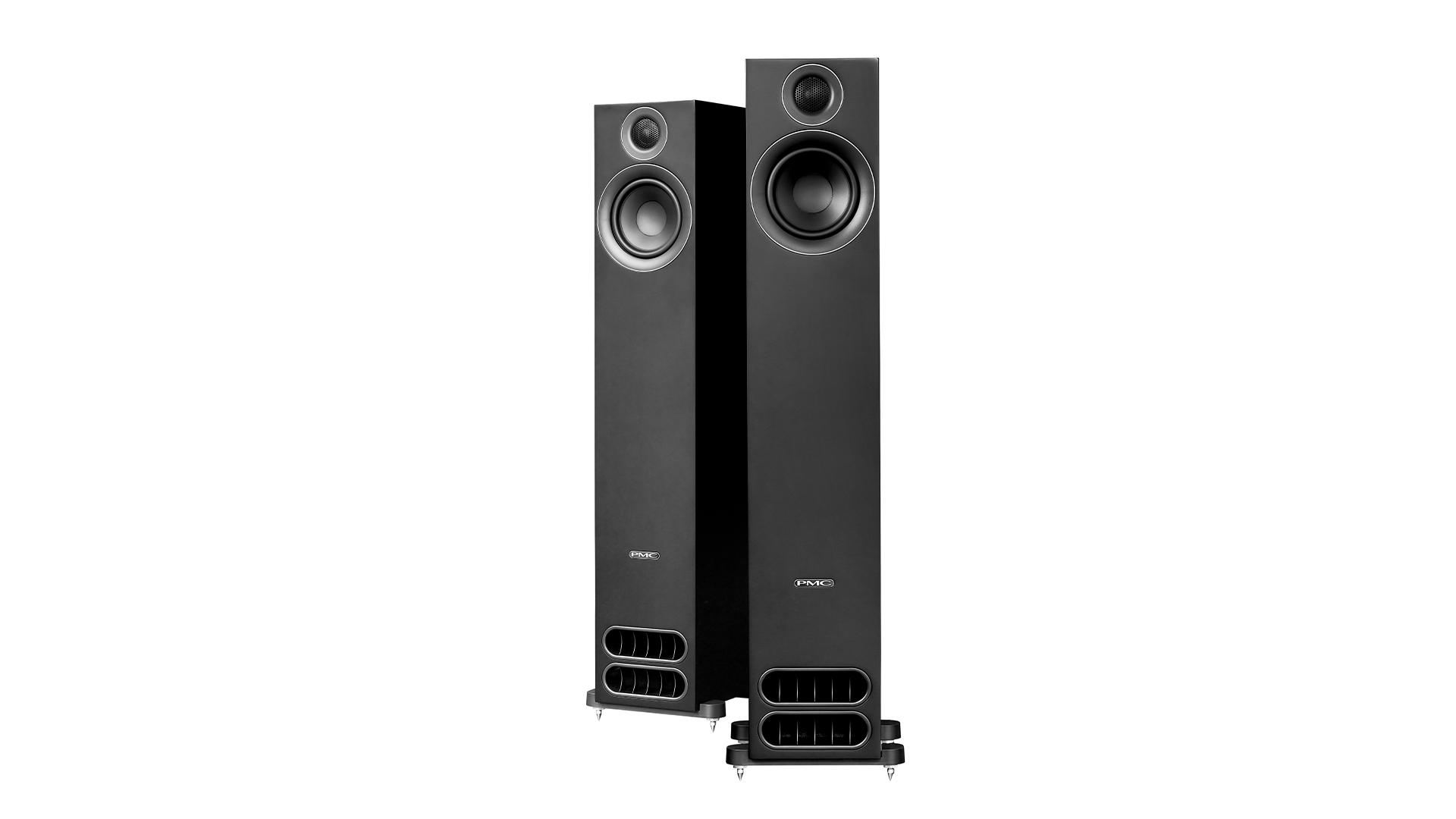
Type Floorstanders
Drive Units 27mm tweeter, 13cm mid/bass
Ported? Yes
Bi-wire No
Impedance 6 ohms
Sensitivity 87.3dB
Dimensions (hwd) 90.5 x 16.5 x 23.7cm
Weight 10kg
Finishes x1 (black)
That, then, is where the speakers such as the Prodigy 5 come in. Despite PMC often producing high-end audio at the higher end of the cost spectrum, the Prodigy 5 floorstanding speakers, along with their smaller Prodigy 1 standmount siblings, have been explicitly designed to bring that distinctive PMC DNA to the mainstream, provided you still have a spare £1995 / $2510 knocking around somewhere, that is.
The priority here, as becomes clear when you look closely at the Prodigy 5, is as much sound-per-pound punch as is humanly possible, as considerations over design and aesthetic flourishes fall by the wayside in the pursuit of the best audio you can get for the price. Want fancy metal feet? You’ll have to settle for mostly plastic. Like a sumptuous oak finish? Be happy with that plain black casing. How about ornate, polished terminals? Perish the thought.
All of this, theoretically at least, should be leading to a pair of speakers that, while utilitarian in appearance, knock it out of the park in terms of sonic performance. PMC is aiming to bring high-end audio to the man on the street with its Prodigy range, with the five-star Prodigy 1 standmounter living up to that ambition with startling confidence. Now it’s time to see if the trick can be repeated with its floorstanding counterparts.
Build & Design
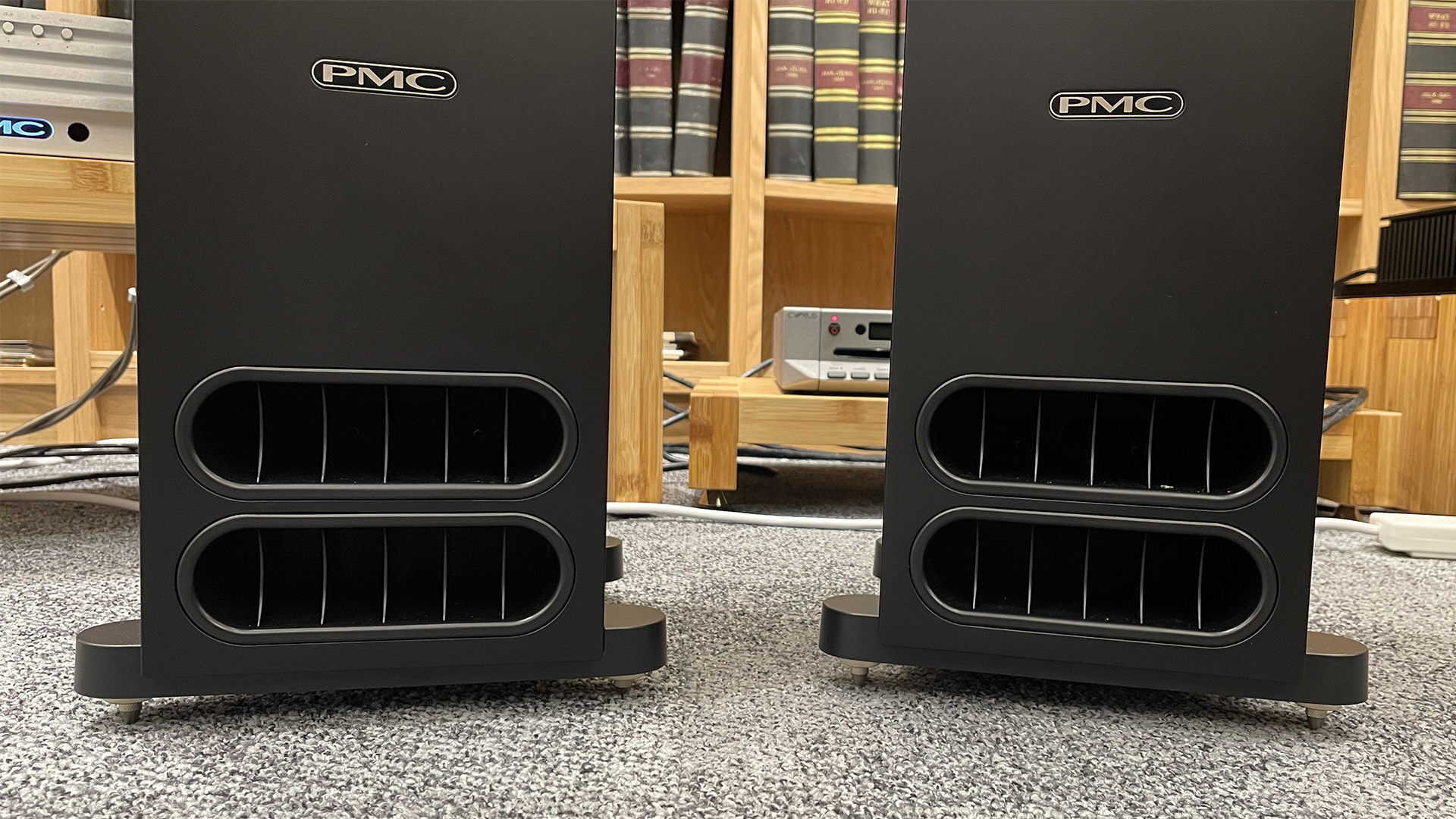
As you’ll have already gathered from this review’s introduction, the PMC Prodigy 5 are, in diametric opposition to the old maxim about Victorian children, designed to be heard rather than seen. Every spare penny has been invested in audio performance rather than visual flair, and to an extent that comes across before you’ve even connected to the Prodigy 5 and booted up your first test track.
Slim, black and lacking in any extraneous flair or add-ons, the Prodigy 5 are, as we've said, built to a modest, utilitarian philosophy. That being said, there’s very little to call the Prodigy 5 actively ugly, and for a pair of floorstanders they’re a long way from drawing the eye in an unfavourable manner. Rather, the slimline towers feel crafted to fade into the background, more as quiet sentinels standing in the shadows than showy centrepieces designed to make a visual statement.
Internally, the Prodigy 5 sport similar overall DNA to the smaller Prodigy 1 standmounts, featuring a 27mm tweeter accompanied by a 13cm mid/bass driver that, says PMC’s head of design, aims to “bring the studio home”. PMC claims to use the same core technology across both its flagship studio products and its home audio speakers, with the Prodigy 5’s drivers aiming to fill a large space thanks to its transmission line technology.
The latest hi-fi, home cinema and tech news, reviews, buying advice and deals, direct to your inbox.
At the bottom of each speaker are a pair of twin ‘Laminair’ vents designed to expand the headroom of the sound which, says PMC, are responsible for expanding the dynamic range of audio reproduction, as well as reducing unwanted air noise in the process.
Compatibility
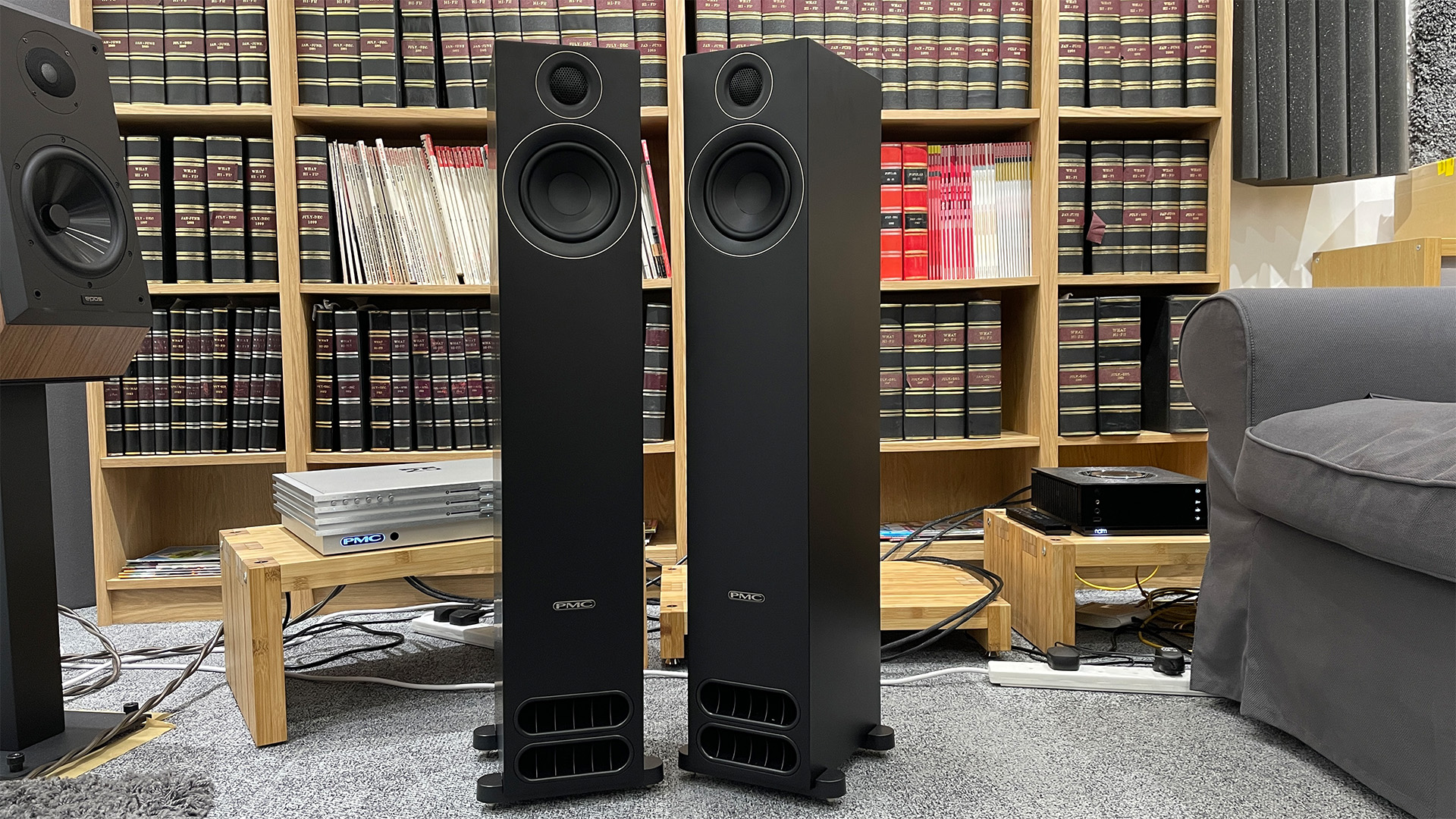
We use our reference system of the Naim ND555/555 PS DR music streamer alongside a Burmester 088/911 MKIII power amplifier for the majority of our testing, but we find that the Prodigy 5 will work well with anything from the Award-winning Cambridge Audio CXA81 amp (tested at £999 / $1299) all the way up to the Naim Supernait 3 integrated (£3499 / $4299).
The Prodigy 5 are typical PMC speakers, in that they’re unfussy and transparent when it comes to the equipment you pair them up with. The slimline floorstanders are easy-going and good-natured up to a point, meaning they’re transparent enough to show you the qualities of a better amplifier but generally willing to reveal, rather than exaggerate, the faults in recordings or accompanying equipment.
Sound
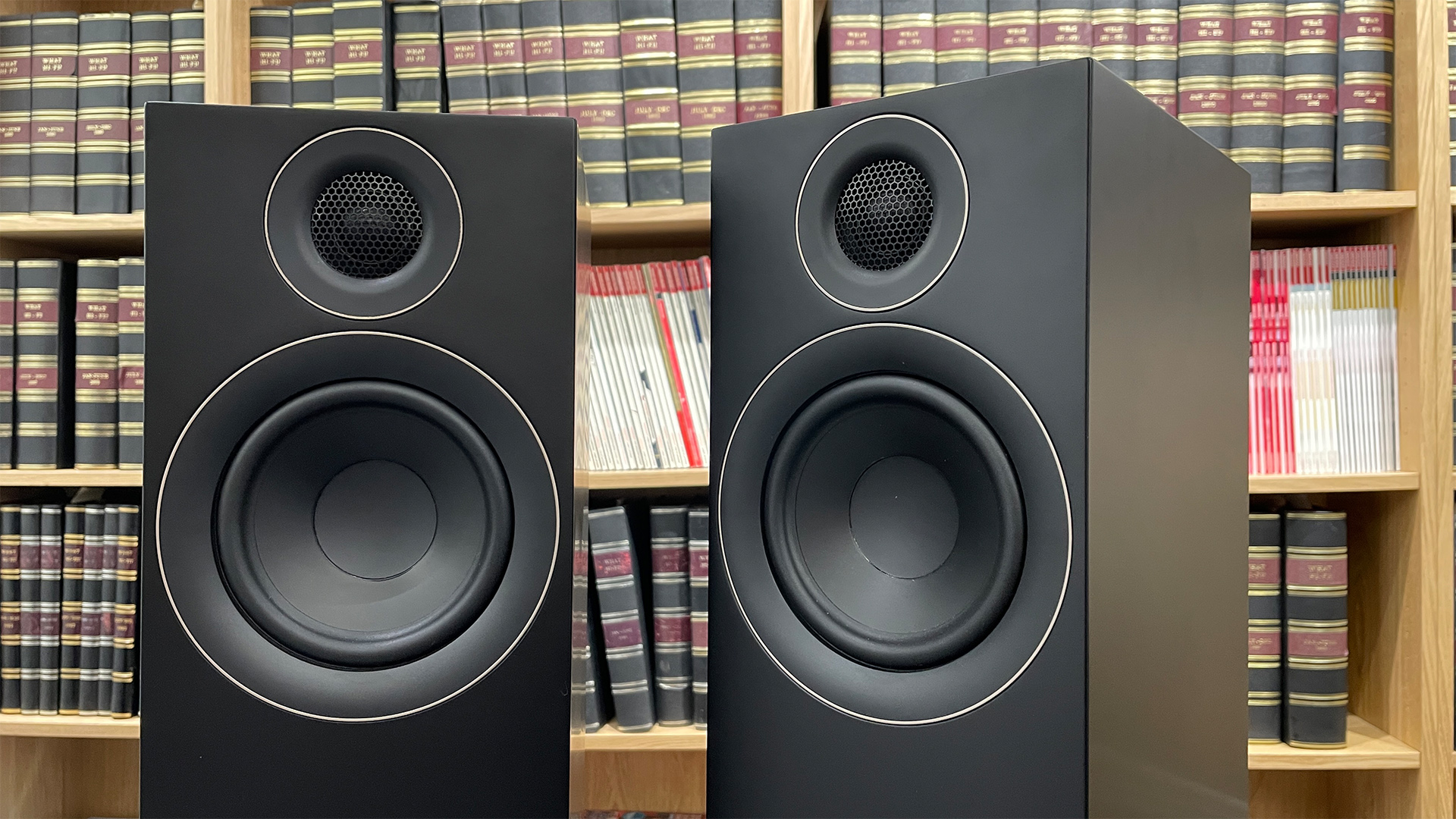
With such an enviable heritage and a legacy for high-end audio showstoppers, we were excited to delve into what these slim, unassuming and affordable towers could manage.
Quite a lot, as it happens. It’s clear from the outset that PMC has hit the sweetest of sweet spots with the Prodigy range, balancing subtle details and musical flourishes with a perceptibly heightened sense of presence, poise and confidence. Shrinking violets they may be to look at, but get the Prodigy 5 warmed up and firing and you’ll understand why the British brand decided on such a name. Prodigy by name, prodigy by nature.
Take their rendition of Björk’s Bachelorette. A bold, brooding number that sees the elfin Icelandic ice queen at her overblown best, it’s a complex, almost industrial ballad that requires as much of the surgeon’s scalpel as it does the engineer’s hammer to truly do it justice. The Prodigy 5’s rendition fulfils these contrary objectives without a hint of strain, matching Björk’s distinctive, piercing vocal vulnerability with the full-bodied and cohesive instrumentation below, all the while revealing the kinks and subtle phrases inherent in such a carefully curated arrangement.
This is what really strikes us about the Prodigy 5, in that they seem to be adept at giving the best of all worlds without a hint of sonic sacrifice. While comparatively priced rivals substitute space for precision or dynamics for subtlety, PMC’s unassuming towers are truly comprehensive performers. Fleetwood Mac’s Go Your Own Way pops with drive and spark in the rhythmic verse sequences, but then fully blooms as it opens out into that iconic harmonised chorus. For building a sense of contrast and drama, we can’t think of a better pair of floorstanders at this level.
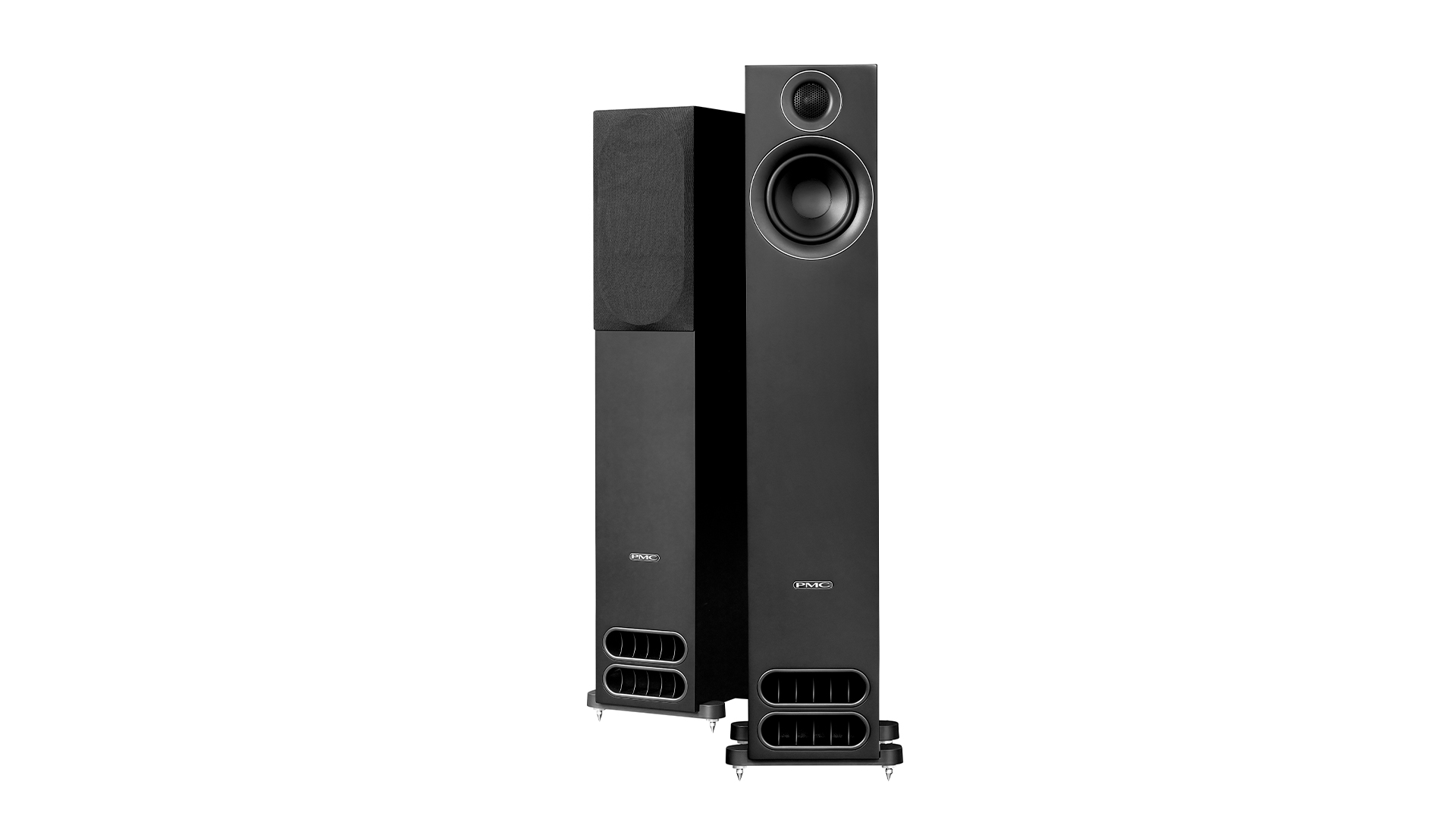
What’s more, they’re a genuinely fun listen, the sort of speakers that you want to keep testing and probing to see how they convey your favourite tracks and arrangements. For all this talk of clarity, poise and wide soundfields (all justified, of course), the Prodigy 5 are an immensely diverting listen across almost all genres. Rock tracks such as Wig Wam’s In My Dreams are invigorating and vibrant, hip-hop anthems like Jay-Z’s No Church In The Wild are packed with flavour, while grand baroque pop, tested via Lana del Rey’s Born To Die carry weight, depth and a real sense of scale. Throw whatever you like at the Prodigy 5 and they'll handle it as professionally as a concierge at The Ritz.
They’re not even particularly fussy about placement, and while you’ll get the best out of the PMCs by positioning them around 40-50cm away from the wall to avoid some overly dominant bass, they’re far from prima donnas in this regard. Angle the Prodigy 5 in slightly towards your listening position and you’ll receive an expansive yet well-focused soundstage.
Verdict
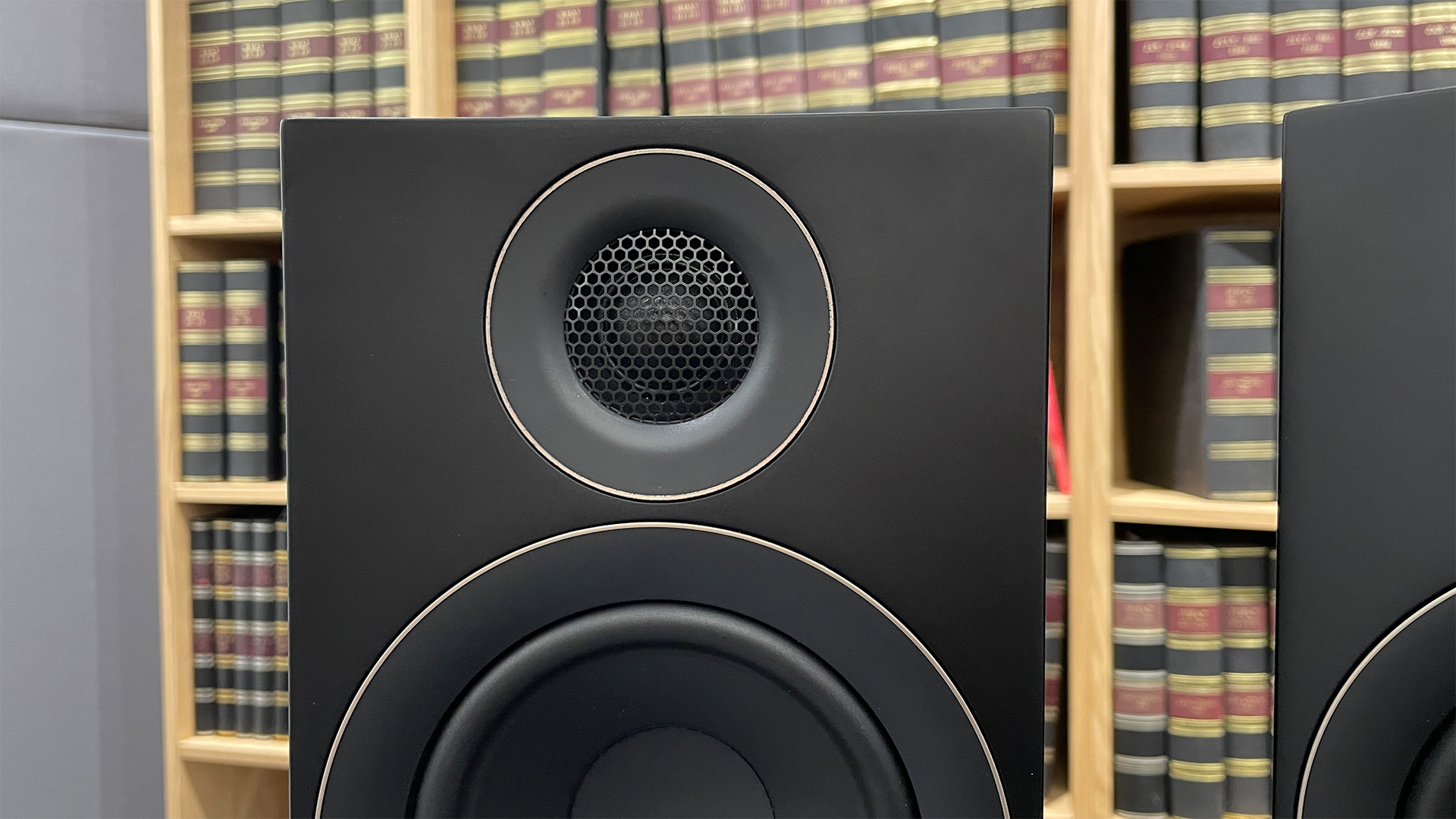
PMC promised to bring studio-grade sound to the masses with its (relatively) affordable Prodigy 1 and Prodigy 5 speakers, a task that could have led to some compromises in quality in the pursuit of more democratised audio.
Happily, the Prodigy 5 fulfil their purpose expertly, and while pennies may have been pinched externally, every ounce of sonic performance has been squeezed from this expertly engineered pair of floorstanders. Rich, refined and endlessly rewarding, the Prodigy 5 see PMC succeed in its mission: this is just about as good as we’ve heard a pair of speakers sound at this price. Result.
Review published: August 2023. Review updated: November 2024.
SCORES
- Sound 5
- Build 4
- Compatibility 5
MORE:
Read our review of the ProAc Response DT8
Also consider the Spendor A7
Best floorstanding speakers: budget to premium
What Hi-Fi?, founded in 1976, is the world's leading independent guide to buying and owning hi-fi and home entertainment products. Our comprehensive tests help you buy the very best for your money, with our advice sections giving you step-by-step information on how to get even more from your music and movies. Everything is tested by our dedicated team of in-house reviewers in our custom-built test rooms in London, Reading and Bath. Our coveted five-star rating and Awards are recognised all over the world as the ultimate seal of approval, so you can buy with absolute confidence.



